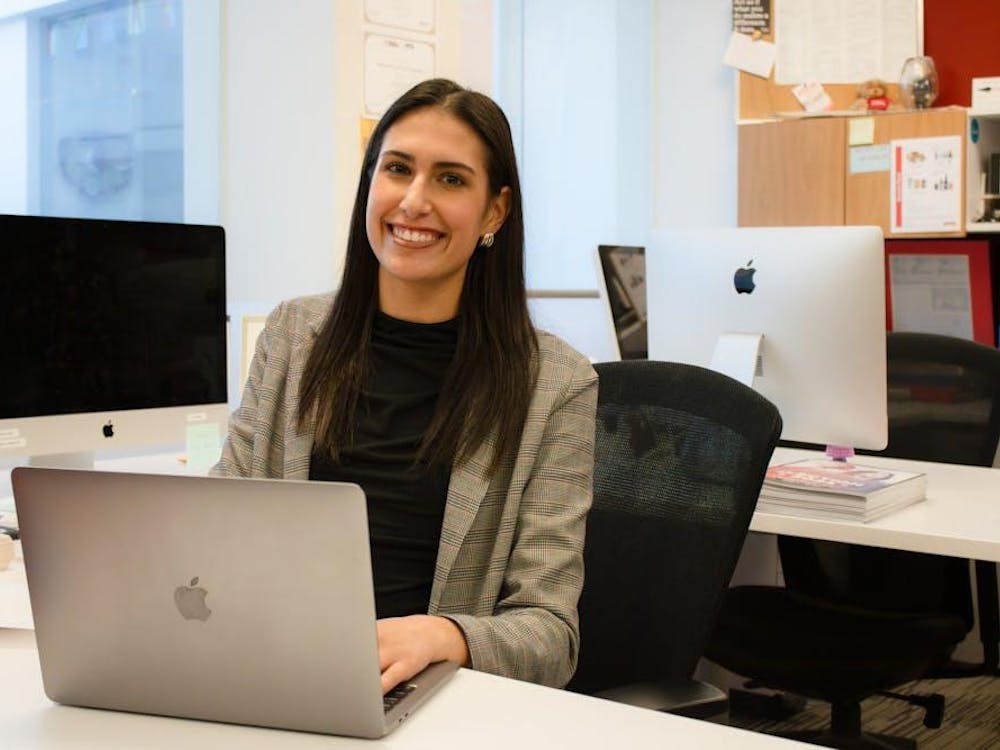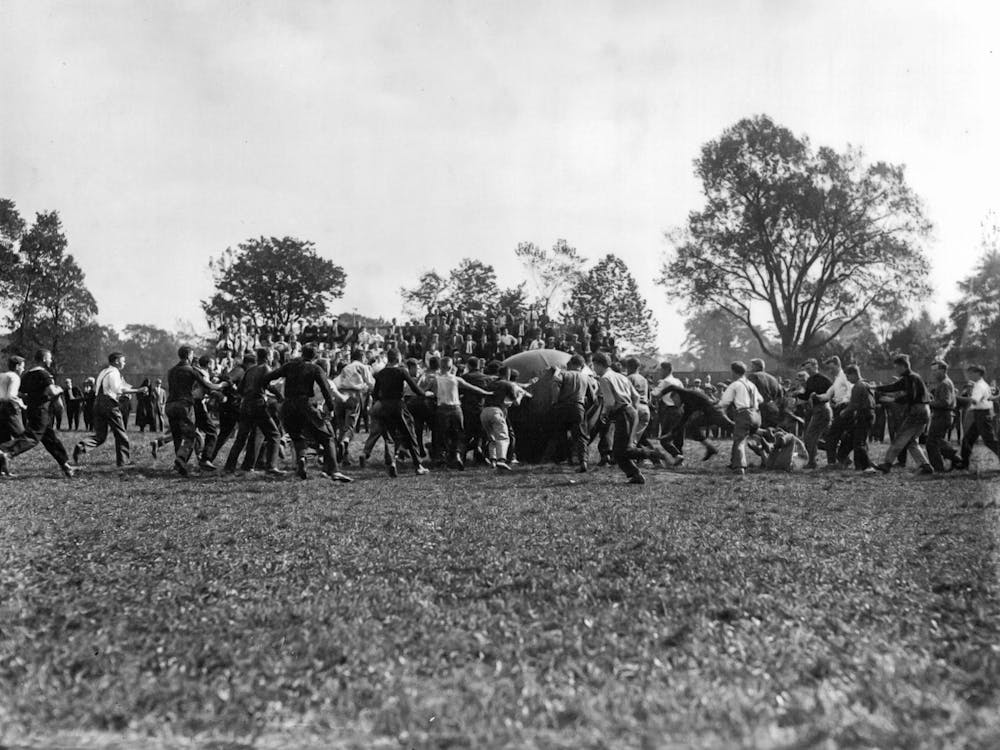Miami University’s leadership has begun to plan out potential novel coronavirus outbreak procedures, as the threat of the virus continues to mount across the country and the world, with three confirmed cases in Cuyahoga County, Ohio, as of Monday, March 9.
Although Miami has an emergency response plan and a pandemic plan already in place that are updated yearly to cover basic crises, additional precautions were needed for this particular situation.
Jayne Brownell, vice president for student affairs, sent out a campus-wide email on March 3 detailing the steps the university is taking to prepare for the unlikely chance of a breakout. One of these steps included forming a crisis management team made up of university leadership, including the president’s cabinet, the provost, the I.T. Department, financing and management and Tri-Health representatives. Brownell said those involved in these discussions will differ each week depending on their area of expertise, and the crisis management team has been assigned to break up into small work groups based on their expertise.
Brownell said the I.T. Department was involved because the university is considering the possibility of organizing online classes to prevent large groups in classrooms from meeting in person, making it easier for the virus to spread. The Ohio State University has already chosen to do this, according to the Wexner Medical Center’s website.
“Ohio State will suspend face-to-face instruction in lectures, discussion sections, seminars and other similar classroom settings and move to virtual instruction, effective immediately and through at least Monday, March 30,” the site reads.
Along with possibly continuing the semester without in-person classes, potential plans being discussed include: where to place an infirmary, what would happen if international students couldn’t go home for the summer or couldn’t return to campus in the fall, how to make sure Miami has all of the necessary supplies and how to limit large gatherings of people, among other scenarios.
Although it is unlikely, Provost Jason Osborne said the university is considering all possibilities, such as canceling convocation and ending the semester early.
“Coronavirus is new,” Brownell said. “We haven’t had a [recent] pandemic like this in the United States, so [we’re thinking about] things that we never thought about in a pandemic plan, because we’ve never seen a pandemic like this one.”
Brownell said students shouldn’t be concerned about those returning from abroad for spring break.
“If we had students coming back from Italy or from Korea, there is absolutely no need to self-isolate. They are still coming back and are considered low risk,” she said, adding that they might be asked to self-monitor and take their own temperature everyday.
At its meeting on March 9, University Senate approved two resolutions related to the coronavirus threat: one prohibiting students, faculty and staff from attending class or work while ill, and one requiring all faculty members to upload functioning Canvas sites for all of their course sections.
Osborne stressed the importance of completing the latter resolution as soon as possible, given the virus’ rapid spread throughout the country.
Enjoy what you're reading?
Signup for our newsletter
“I really hope we have more time to prepare [for the virus reaching Butler County], but the county may come in tomorrow and say ‘This is it,’” Osborne said. “You can take all the time you want, but when it all hits the fan, there’s no more time, and we need to be ready.”
While the university is asking professors to consider how their class could be transitioned to online only if necessary, the professors are left to decide how to do this. But a transition to online classes would be more challenging for some departments than others.
James Meeker, a visiting assistant professor in the sociology department, said he already uses a “blended classroom” method. He uses Canvas for the syllabus, assignment due dates, journal articles and other uses. If he had to make his class online, the only change would be students would watch a video of him lecturing instead of coming to class.
“To transfer my classes to be completely online in the event that we have to suspend classes for the university, I could do it the next day,” Meeker said. “It would be very easy for me.”
For some professors, though, the change to online courses would be more difficult.
Rob Robbins, chair of the department of art and professor, said that the majority of the classes in the department are studio classes, meaning they meet for about six hours a week to practice art techniques such as drawing, painting, ceramics and jewelry-making that often require specialized materials and equipment.
Robbins said the department will approach this problem by having faculty members in each area collaborate with a small core team of professors who have experience teaching studio art online to come up with a method that works for each class. Though online studio classes are unconventional, Robbins said he thought it might open up new ways to teach and learn art.
“It’s going to be hard,” Robbins said. “I think that there will be a learning curve involved, so there will be some inefficiency there, but I think there is also the potential for upsides. It’s sad that a nasty, contagious virus has to provoke that, but I’m not feeling doom and gloom in terms of what the learning outcomes for the semester might end up being because of this.”
Sophomore psychology major Emma Moughan, who is from Cuyahoga County, said that there haven’t been any shutdowns in her hometown, so shutting down Miami’s campus would be unnecessary.
“I just feel like it’s a glorified flu and that people are overreacting about it,” Moughan said. “I understand that it’s a novel virus, but personally I’m kind of skeptical of all these reactions.”
In an email to The Student, Osborne emphasized that students take the proper precautions, such as staying home when ill, washing hands frequently and avoiding panic.
“Helping students (and perhaps more importantly, parents) understand actual risks for young, healthy individuals should be comforting,” he wrote.
The crisis management team will continue meeting in the coming weeks to form plans in the event Miami is affected by coronavirus. Brownell said they don’t have a definitive timeline for how long these discussions will last and that it will be an ongoing conversation.
Miami’s coronavirus information page can be accessed here. The CDC also has a comprehensive coronavirus page. Anyone who is experiencing symptoms can call the Student Health Service at 513-529-3000.




